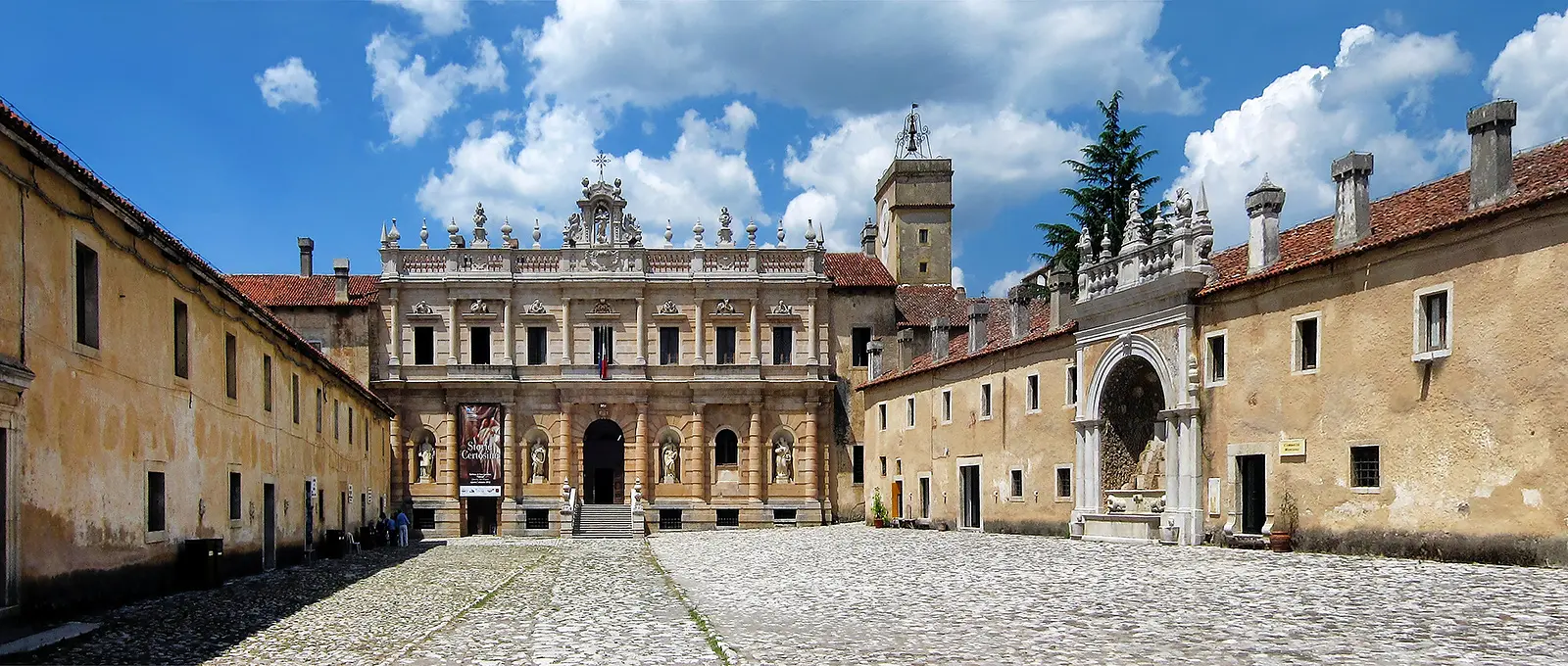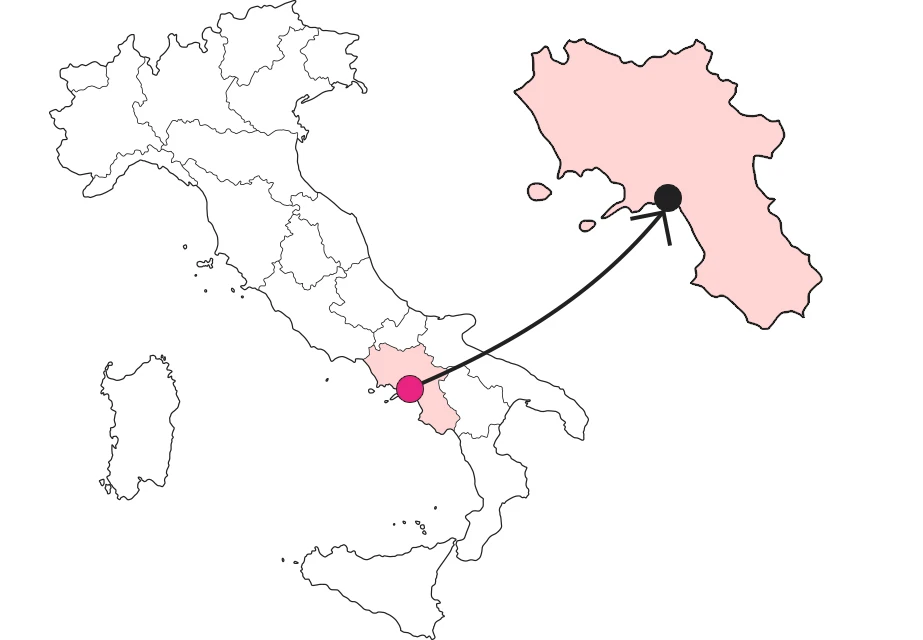
















The Charterhouse of Padula, Unesco heritage site
Where the Tanagro becomes a river



Where

What it is and where it is
Padula is a village in the Vallo di Diano that stands on the top of a mountain, but its best-known element is located outside the historic center, almost downstream: it is the Charterhouse of San Lorenzo, also known as the Carthusian Monastery of Padula. It is a very extensive complex of marvelous buildings among which stand out large and green cloisters, courtyards dedicated to work activities, the church and all the facilities necessary for the life of the monks. Seen from a distance, its visual impact is impressive: it is so large that it steals the scene from the village, so much so that panoramic images of Padula are often taken from within it. Not for nothing is it one of the largest in Europe.
Why it is special
Such an extension has been achieved over time, gradually expanding the existing structures and adding new ones. That is why today the Charterhouse is a combination of many different artistic and architectural styles, which coexist closely together especially in the church. It can be said that the Carthusian Monastery of Padula is a real open-air Art History book! Such a rich heritage deserved special protection, and in fact since 1998 it has been a UNESCO World Heritage Site together with the Cilento National Park, the Vallo di Diano area, Paestum and the archaeological excavations of Velia.
Don't miss
The beauty enclosed in the Charterhouse of San Lorenzo is so much that it is really impossible to point out one place more deserving than others, also because there really is something for all tastes: fans of Baroque art will not be able to take their eyes off the frescoes on the church ceiling, for history lovers there is a museum section that collects many archaeological findings from the Padula area, and there is also bread for the curious who are always looking for the more prosaic details of life in the past: trust us, the cuisine is really a marvel!
A bit of history
The Carthusian Monastery of San Lorenzo was built there where there was a chapel owned by Benedictine monks, formerly dedicated to San Lorenzo, purchased in 1306 by Tommaso Sanseverino, a promoter and financier of the construction of the monastic complex, which he donated to a group of Carthusian monks. Between the 1400s and 1500s, the first expansions began, but it was between the late 1500s and early 1600s that the grand Baroque makeover took place. Much of its wealth was dispersed under Napoleonic rule, but some of it was returned.
Trivia
Padula's name comes from the Latin word "paludem," which suggests that in the past there was a swamp on the plain around the town. Today the land has been reclaimed, but there remains a strong connection with water since it is precisely here that the Tanagro reaches a flow rate and size worthy of a river: it is usually said that it does so in the shadow of the very Charterhouse of San Lorenzo.
Enter the Map of Italy's Undiscovered Wonders and find treasures where you least expect it... Inspire, Recommend, Share...
Contacts
Collections
The Map thanks:
Enter the Map of Italy's Undiscovered Wonders and find treasures where you least expect it... Inspire, Recommend, Share...
Where

Contacts
Collections

